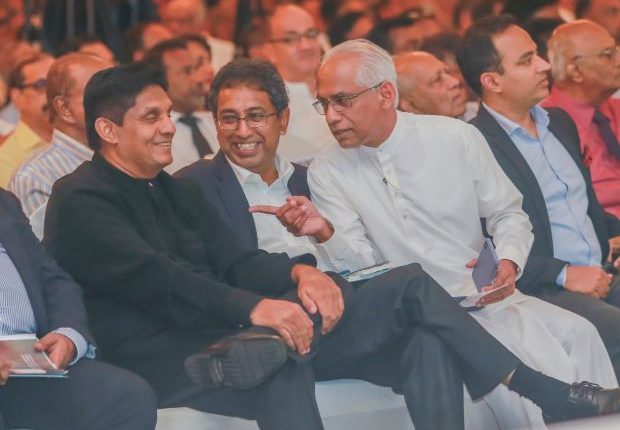SJB no longer enamoured of IMF, promises new Govt. in three moons
By Himal Kotelawala
COLOMBO – Sri Lanka’s main opposition party the Samagi Jana Balawegaya (SJB), which appears keen to distance itself from its initial enthusiasm for a deal with the International Monetary Fund (IMF), is promising an SJB-led government in “three full moons”.
“Remember, in three Poya days’ time, this government will go home. We will definitely form an SJB government in three [full moons] and create a strong force that can kick this government out,” said SJB legislator Chaminda Wijesiri speaking at a press conference on Monday (8).
Meanwhile, fellow SJB MP Kabir Hashim speaking at an event in Monaragala on Sunday (7) alluded to a unique vision his party possesses with regard to macroeconomic development that doesn’t necessarily include the IMF.
Hashim said that when Sri Lanka was heading towards its ongoing currency crisis early last year, the SJB had presented to the government a common minimum program it could follow.
“[We said to the government], if you’re talking to the IMF, talk to them according to our roadmap and negotiate with the IMF under our own conditions without agreeing to theirs. But this was not accepted,” he said.
The MP said that the SJB is looking at Asian examples like Malaysia that were able to find a solution to their own economic woes without going to the IMF “because they had developed economic strategies unique to them”.
The SJB has drawn up a strategy of its own for a new economic development program for Sri Lanka by looking at models adopted by regional success stories and incorporating only what’s most suitable for the country, to be implemented within a social market economic system, said Hashim.
If the SJB were to form a government tomorrow, he said, the party would have already conceived a program that has the ingredients to generate employment, increase exports and earn dollars, he added.
The SJB’s position with regard to the IMF program, Sri Lanka’s 17th so far, has been less than consistent. The party, which was among the first to call for a deal with the international lender at the onset of the island nation’s worst currency crisis in decades, abstained from voting for the now-finalized agreement in a vote taken in Parliament on April 28 this year.
The SJB’s own common minimum program released in August last year said Sri Lanka must engage the IMF and restructure its debt.
“Deep, extensive economy-wide changes are needed to come out of the crisis: we must address our solvency issues through reforms that allow debt sustainability. Designing and implementing an IMF-assisted extended fund facility (EFF) program would be the best place to start,” the document said.
A more recent version of this blueprint released at an SJB economic summit held in February this year, said Sri Lanka must continue to engage the IMF and expedite the debt restructuring process with creditor assurances.
Presenting the document at the February event, SJB MP Harsha de Silva said that, unlike others (in a clear dig at the anti-IMF rival opposition party the Janatha Vimukthi Peramuna), the SJB supports engaging with the IMF.
While the SJB hasn’t quite had a drastic departure from its original pro-IMF stance, the party has been increasingly vocal of late about the socioeconomic impact of the deal.
SJB leader Sajith Premadasa earlier this year reportedly said a future SJB government would not be obligated to honour deals made by the incumbent government headed by President Ranil Wickremesinghe. MP de Silva explained later that what his party leader had meant was that Sri Lanka must negotiate terms favourable to the country when dealing with the IMF.
-economynext.com



Comments are closed, but trackbacks and pingbacks are open.